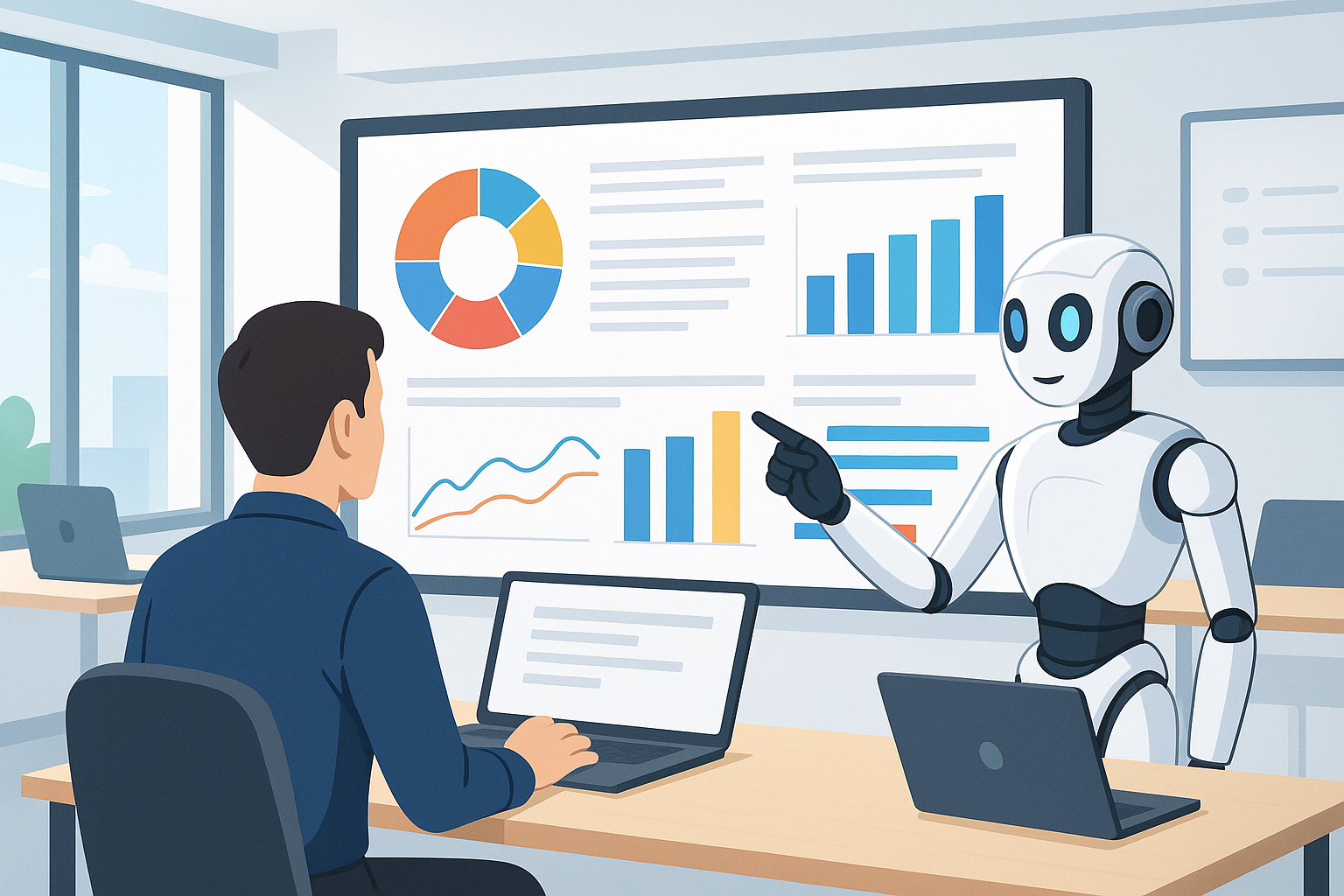Artificial Intelligence (AI) has evolved from a futuristic concept to an integral part of our daily lives, revolutionizing how we work, learn, and interact with technology. As we advance through 2025, AI continues to demonstrate its transformative power across virtually every sector of human activity.
Understanding AI and Its Core Purpose
AI represents a collection of technologies that enable machines to simulate human intelligence, including learning, reasoning, problem-solving, and decision-making. At its core, AI serves to enhance human capabilities rather than replace them, creating a symbiotic relationship between human creativity and machine efficiency.
Key Ways AI Helps Human Beings
1. Healthcare Revolution
AI is transforming healthcare by enabling early disease detection and improving diagnostic accuracy. Machine learning algorithms can analyze medical images such as X-rays, MRIs, and mammograms to detect conditions like cancer earlier than human doctors might spot them. For example, Google Health developed an AI model that outperformed radiologists in identifying breast cancer in mammograms, reducing both false positives and false negatives.
AI also accelerates drug discovery by analyzing vast datasets to identify potential treatments and predict drug interactions. This capability is particularly valuable in developing personalized treatment plans based on patients' genetic information and medical history.
2. Enhanced Decision-Making
One of AI's greatest strengths is its ability to process enormous amounts of data quickly and identify patterns invisible to humans. This capability enhances decision-making across industries:
- Financial Services: AI analyzes market data and historical patterns to predict stock movements, helping investors make informed decisions
- Business Intelligence: AI processes complex datasets to provide actionable insights for strategic planning
- Predictive Maintenance: AI tracks equipment performance to predict failures before they occur, preventing costly breakdowns
3. Automation and Productivity
AI significantly boosts productivity by automating repetitive tasks, allowing humans to focus on creative and strategic work. This automation spans multiple areas:
- Manufacturing: AI-powered robots handle assembly, welding, and quality control with precision and speed
- Customer Service: AI chatbots provide instant support, reducing response times and handling routine inquiries
- Document Processing: AI automates data entry, invoice management, and compliance tasks
4. Personalized Experiences
AI creates highly personalized experiences by analyzing user behavior and preferences:
- E-commerce: Platforms like Amazon use AI to recommend products based on browsing history and purchase patterns
- Streaming Services: Netflix uses AI algorithms to suggest content aligned with individual viewing preferences
- Education: AI-powered platforms provide personalized learning paths and adaptive content based on student performance
5. Smart Infrastructure and Navigation
AI improves urban life through intelligent systems:
- Traffic Management: Google Maps uses AI to analyze traffic conditions and provide optimal routes
- Smart Cities: AI-powered surveillance cameras detect suspicious behavior and enhance public safety
- Energy Management: Smart thermostats like Nest learn user preferences to optimize comfort and energy savings
Addressing Human Limitations
Reducing Human Error
AI significantly reduces errors in critical applications:
- Robotic Surgery: AI-assisted surgical systems perform complex procedures with enhanced precision
- Quality Control: AI systems in manufacturing detect defects that human inspectors might miss
- Financial Fraud Detection: AI analyzes transaction patterns to identify suspicious activities
Unbiased Decision-Making
AI can help eliminate human biases in decision-making processes:
- Recruitment: AI-powered hiring systems evaluate candidates based on skills and qualifications rather than demographics
- Healthcare: AI provides objective analysis of medical data, reducing diagnostic bias
24/7 Availability
Unlike humans, AI systems can operate continuously without fatigue:
- Digital Assistants: Siri, Alexa, and Google Assistant provide round-the-clock support
- Emergency Response: AI systems monitor critical infrastructure and alert emergency services when needed
Educational and Learning Enhancement
AI is revolutionizing education by providing:
- Intelligent Tutoring Systems: AI adapts to individual learning styles and paces
- Automated Grading: AI evaluates assignments and provides instant feedback
- Language Learning: AI-powered apps provide personalized language instruction with real-time pronunciation feedback
Economic and Social Benefits
The integration of AI brings substantial economic advantages:
- Increased Productivity: Businesses using AI report up to 40% increase in productivity
- Cost Reduction: Automation reduces operational costs while maintaining quality
- Job Creation: While AI automates some roles, it creates new opportunities in AI development, maintenance, and oversight
Future Implications
As we look toward the future, AI's role in helping humanity will continue to expand:
- Climate Change Solutions: AI optimizes energy consumption and helps develop sustainable technologies
- Scientific Research: AI accelerates discoveries in fields like astronomy, chemistry, and physics
- Accessibility: AI enables better assistive technologies for people with disabilities
Conclusion
AI's primary purpose is not to replace human intelligence but to augment it, creating a world where technology amplifies human potential. From healthcare and education to business and daily life, AI serves as a powerful tool that enhances human capabilities, reduces errors, and enables us to solve complex problems more effectively.
The key to maximizing AI's benefits lies in thoughtful implementation that considers ethical implications and maintains human oversight. As AI continues to evolve, its greatest value will be in empowering humans to achieve more than ever before possible, creating a future where technology and humanity work together toward common goals.
This symbiotic relationship between AI and humans represents one of the most significant technological partnerships in history, promising continued innovation and improvement in virtually every aspect of human life.